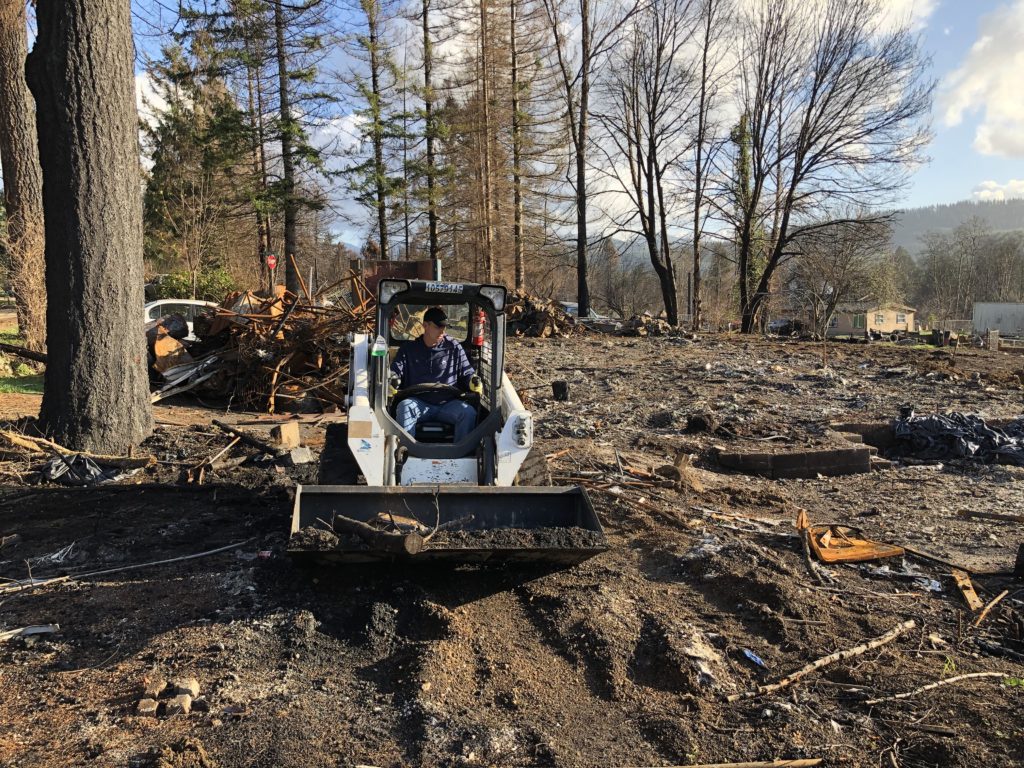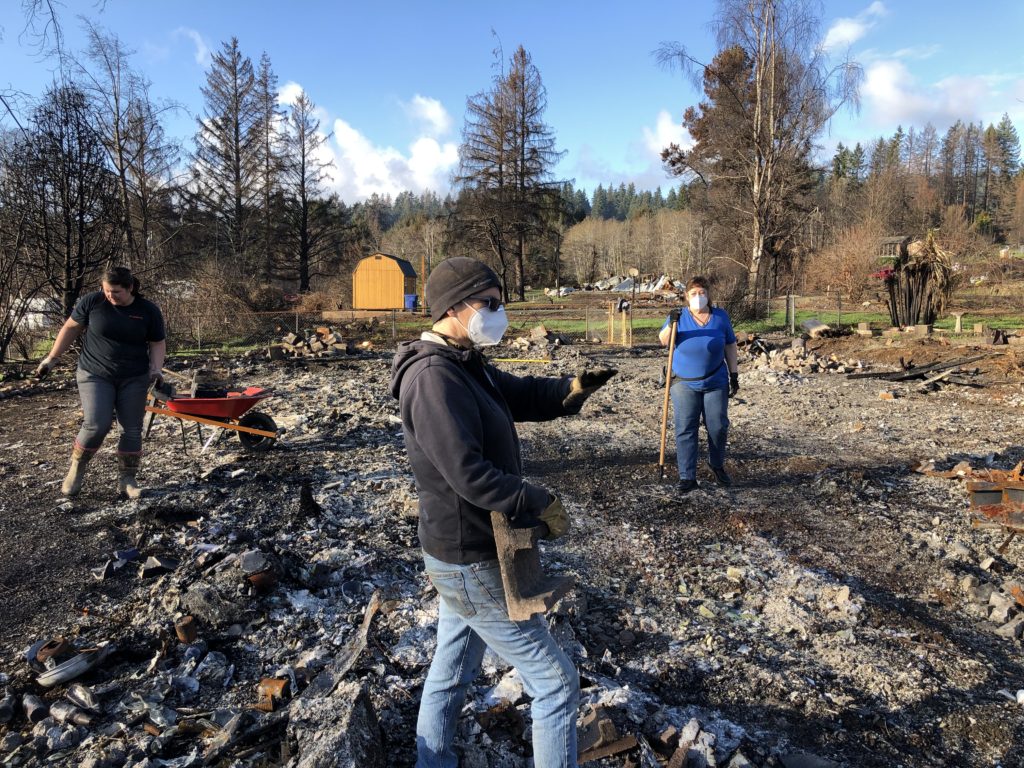
By DANA TIMS/YachatsNews.com
Residents of the fire-charred community of Otis will have to wait awhile longer – December or maybe January – to learn if more relief is on the way to rebuild 300 homes destroyed in September’s Echo Mountain Complex wildfire.
Lincoln County commissioners have already provided some assistance in the form of waiving building permit fees and deferring enforcement on living in recreational vehicles.
But efforts to waive a school construction excise tax — enacted by the Oregon Legislature to help school districts pay for new facilities — for rebuilding efforts in Otis is proving slower and more difficult.
The Lincoln County School District Board discussed the issue Tuesday night, but put off a decision until its Dec. 8 meeting so administrators would have time to work out proper language and a process to waive the tax. If approved by the board in December, waiving the tax would be retroactive to September – and represents a reversal of earlier positions.

“I feel this is the right thing to do for the community and worth a potential legal risk, if any, because the law is not specifically clear if we can grant a waiver,” district Superintendent Karen Gray said in a statement Thursday.
Gray said the district’s waiver would be limited to the Otis-area fire, only for primary residences, and that homeowners must apply for it by the end of the district’s fiscal year, which is June 30, 2021.
But even with the waiver, the issue could also land in a special session of the Legislature in December or in a regular session in January.

“I believe that if you are rebuilding after a devastating fire, we need to remove any disincentives for additional charges you might face,” said Rep. David Gomberg, whose own Otis-area house narrowly escaped the flames that destroyed a third of the homes on his street. “What we need to do right now is clean up this statute and make sure we have this addressed for the future.”
Gomberg asked the lawyers who advise legislators if local jurisdictions have the authority to waive the tax, which was enacted in 2008 and currently is $1.24 per square foot for new or replacement homes.
“The answer they gave me is that a district can choose whether or not to apply the tax, but that if they choose to apply it, they must apply it uniformly,” Gomberg said. “That’s obviously the sticking point we’re looking at right now.”
If Gov. Kate Brown calls a special session of the Legislature sometime in December, Gomberg hopes to get his proposed fix on the agenda. It would waive the construction excise tax for victims of a natural disaster in a declared emergency.
Failing that, Gomberg said he will introduce a bill in January, when the Legislature convenes for its next regular session. If approved, his proposal would be retroactive to January 2020, meaning funds collected by the state would be returned to homeowners if they met the bill’s conditions.
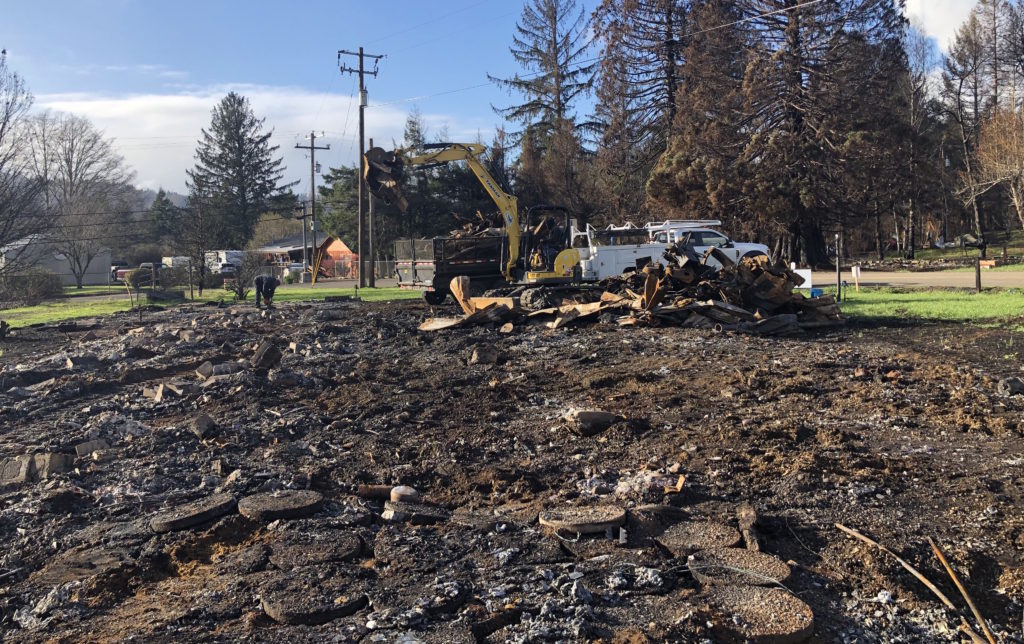
Not waiving tax angers many
The district’s initial reluctance to immediately waive the tax angered many Lincoln County and Otis residents, who pointed to other Oregon school districts – including those similarly impacted by September wildfires – have already done it.
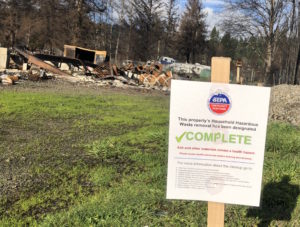
Last month, for instance, the North Santiam School District chose not to apply the tax to victims who lost homes in the Beachie Creek fire. The Greater Albany School District exempts residents from paying the tax if they are replacing structures lost in fires or floods.
Gomberg said he understands the frustration expressed by residents in Otis and elsewhere, but added, “There seems to be some confusion or perhaps in some cases a simple disregarding of the statute. They are trying to do the right thing, but we’ve been told in no uncertain terms that they have to collect the taxes.”
For many, the tax is no small deal. Gomberg said the best estimates he has seen show that the tax adds about $2,000 to the upfront costs faced by homeowners seeking to replace their burned-down dwelling.
The Lincoln County district’s and board’s reconsideration of a waiver represents a change in their initial positions. At an Oct. 13 board meeting, for instance, Gray said flatly that state law gave local districts no leeway in deciding whether to exempt people affected by disasters from the tax.

Her statement prompted an immediate backlash from some county residents, who accused the board of ignoring the dire situation facing those who have lost their houses.
Gray, during the board’s Tuesday meeting, said, “I hope we end up supporting something. I really do.” But she also underscored the larger purpose of the excise tax, saying, “We actually do need this money. We’ve got leaky roofs.”
Board chair Megan Crowley said she thought the district is “moving in the right direction.” “We want to help people who need help, but not cause too big a loophole,” she said, that will affect the law forever.
“We all feel so bad for those who lost their homes,” board member Amanda Remund of Waldport said in an interview with YachatsNews. “These folks are our neighbors and we want to do everything we can to help them. It’s just a matter of what we’re able to do at this point.”
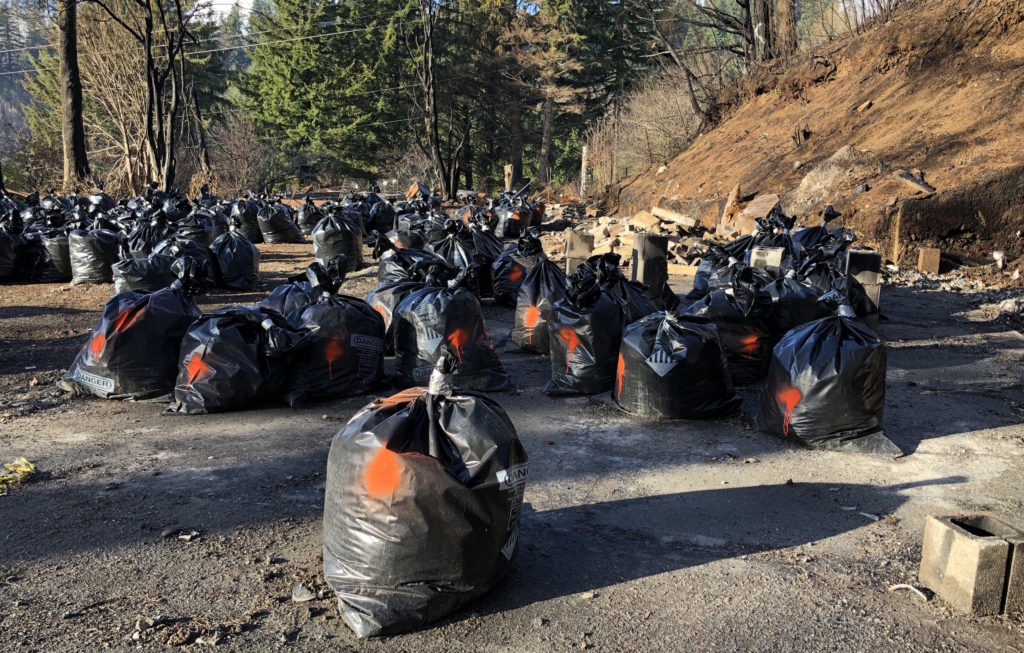
County commission opposed waiver
In late October, two of Lincoln County’s three commissioners also did not support a motion by Claire Hall motion to instruct the county building department to not collect the school construction tax.

“I never imagined I would find myself in a position of proposing that we do not uphold a law,” Hall said in making her motion. “But I believe there are principled legal grounds to decline to collect this fee. The construction excise tax was and is just a law.”
Commissioner Dave Hunt noted that, if the fee were to be waived, the school district should be the organization that pulls the trigger since the tax’s proceeds are specifically intended to help build new school facilities.
“I think it’s entirely inappropriate for us to use a hammer and say, ‘Well, we don’t agree with your decision, and we think there’s ample reason to waive the fee, so we’re going to order that the fee not be collected,’” Hunt said. “That to me is frightening.”
Onno Husing, the county’s planning director, estimated that waiving the fee could result in lost revenue of $76,000 in replacement fees and $250,000 from septic permits. He added, however, that those losses could be spread out over a number of years and could gradually be recouped as homeowners move to replace destroyed dwellings.
Former state Sen. Ryan Deckert was among those who helped draft the construction excise tax in 2007. He said he supports Gomberg’s current legislative efforts to add language about natural disasters in waiving the tax.
But he added that, in his view, the wording of the original legislation is sufficient to do the same thing now.
“The intent was to give jurisdictions maximum flexibility, which is why the statute is full of ‘mays’ and not ‘shalls,’” Deckert said. “There are no ‘shalls,’ just ‘mays.’”
Regardless, any decision to make the change that lawyers advise appears to be weeks, if not months, away.
- Dana Tims is an Oregon freelance writer who contributes regularly to YachatsNews.com. He can be reached at DanaTims24@gmail.com
